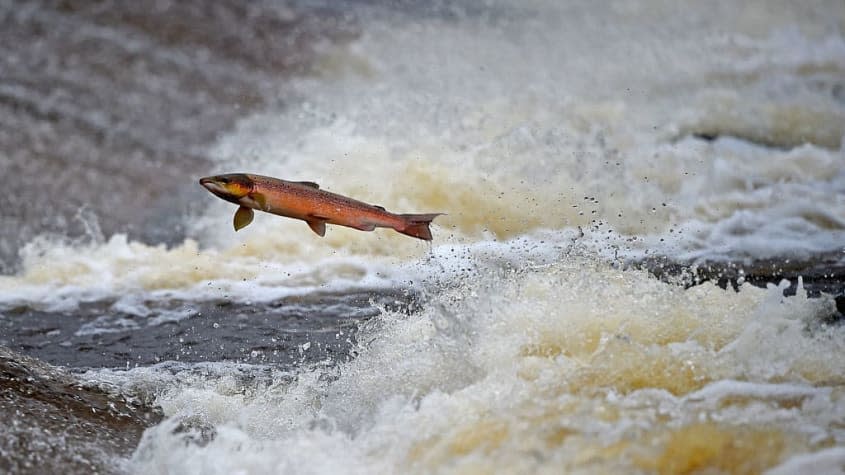Can a fishing ban save the West Coast's salmon?

Most of the U.S. West Coast will ban salmon fishing this year in an effort to protect the species' population. California in particular has seen a significant hit to the salmon stock, requiring drastic measures for the first time in 14 years, per NPR.
What is happening to the fish stocks?
The low stock can be attributed to "the one-two punch of heavily engineered waterways and the supercharged heat and drought that come with climate change," explained The New York Times. Glen Spain, acting executive director of the Pacific Coast Federation of Fishermen's Associations, told The Associated Press the vast die-off of salmon eggs and juvenile salmon in recent years could be blamed on "politically driven, short-sighted water management policies."
The Chinook salmon, or king salmon, has been the most dramatically affected, NPR reported. This kind of salmon requires cold and clean freshwater to survive, but California's years of drought, coupled with warming water temperatures due to climate change, have taken a toll. "California salmon are in dire straits," according to climate scientist for the National Oceanic and Atmospheric Association (NOAA) Fisheries Nate Mantua. The state's historic redirection of water sources for agriculture "cut off salmon from the mountain rivers where they cooled off in summer and from the floodplains, rich with bugs, where they packed on weight in winter," the Times added.
California isn't the only area affected. There are reports of low salmon stock even further north in British Columbia, Canada. The region experienced a record-breaking heat wave in 2021, causing the salmon migration to be "doomed by heat," said Jesse Zeman, director of the B.C. Wildlife Federation. There has also been a decline in salmon populations in the Atlantic, according to a study published in the Holocene journal.
Will a fishing ban help or hurt California?
A West Coast fishing ban is expected to reverberate across local communities in several ways. The price of salmon is likely to increase, and certain Indigenous tribes that have historically fished salmon for subsistence could suffer, CNN explained. "We lost our language," emphasized Keith Parker, senior fisheries biologist for the Yurok Tribe to the Times. "We lost our religion for a long time. We lost our fish. So, we lost a lot."
Still, many are in favor of the ban. "The fishing community – the commercial fleet and recreational fishing groups – have largely supported the closure of the salmon season," Michael Milstein, a spokesperson for NOAA Fisheries, told CNN. "They argue that they should not be fishing when the stocks have declined to this level."
Can salmon make a comeback?
The good news is that California experienced unprecedented precipitation recently, which could help to restore some of the salmon population that was lost due to drought. "We're hoping that this is going to help salmon populations get back on track and that it's not an anomaly — in that, this happens once, and then we slip back into a drought," Ben Enticknap, a scientist with the nonprofit Oceana, told CNN.
Four man-made dams are slated to be removed in the state, which will restore 400 miles of historic salmon habitat. "Even though it's like the lowest salmon runs and it's horrible, on the other side of the coin, it's also one of the greatest years because in July the first dam is coming down," Parker told the Times. Daniel Schindler, a professor at the University of Washington, added, "The best thing we can do is give those fish the best chance they have to figure it out evolutionarily," by allowing them more habitat access to spread into.
Water temperatures are only expected to get warmer though, especially with El Niño expected to return this year. "Climate change is expected to be detrimental to Pacific salmon populations at every life stage," Enticknap told CNN.
You may also like
5 unethically funny cartoons about Clarence Thomas
Supreme Court weighs Christian former mail carrier's right to refuse Sunday shifts

